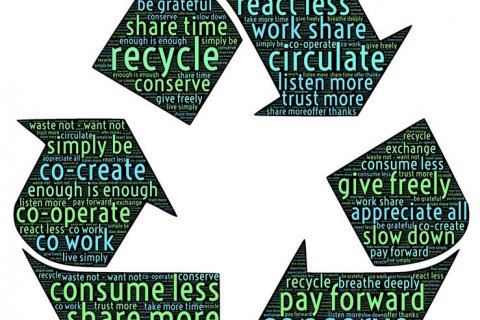The breakthrough of the circular economy
Current interest remains within the sustainable industry

Contrary to what experts in the sustainable sector think, the circular economy is still a niche that is not well known by the wider public. This conclusion was drawn by Utrecht University and the accounting and advisory agency Deloitte in a white paper published on 6 November. The most significant barrier can be overcome if both the business community and the government invest more in an innovation-oriented culture.
No hype
The circular economy is the system in which no finite raw materials are exhausted and in which residual materials are reused. The required energy is exclusively generated from renewable sources. According to experts working in the sustainable sector, the circular economy is becoming a real hype in society, but innovation researchers of Utrecht University and Deloitte refute this claim.
Interviews and surveys
In a white paper entitled Breaking the Barriers to the Circular Economy the researchers discuss the results of the largest survey ever conducted in Europe about this topic; more than 150 companies, 50 government officials and 50 thought leaders in the field of sustainability and the circular economy participated. The conclusion: the circular economy is important among professionals in the sustainable industry, but is much less known in society.
Overcoming barriers
“The interviews clearly reveal that the circular economy still has a number of barriers to overcome in order to become well known in society”, says Julian Kirchherr, innovation scientist at Utrecht University and lead researcher. “We categorised these barriers on the basis of the interviews and concluded that the most significant barrier is raising awareness of the circular economy among the wider public. A second important barrier is the price of finite raw materials - as a result, circular products have difficulty competing with linear variants.”
“What is striking about this broad survey is the fact that the technical side of innovations is considered less restricting than the cultural side”, adds Anne Huibrechtse-Truijens of Deloitte. “Inventing and designing is apparently easier than breaking through traditional patterns.”
The role of government and entrepreneurs
Large companies, starting entrepreneurs and the government play a role in breaking through the barriers. The government can ensure that the prices of newly extracted raw materials rise. This would make recycling materials more attractive to companies. “Companies have to then take this step, however”, says Huibrechtse-Truijens. “Large companies tend to stick to existing business models that they find difficult to set aside, but it is nevertheless essential that they do so. This is an excellent opportunity for innovation.”
Furthermore, starting entrepreneurs can also break through the pattern with circular start-ups. While large companies are unable the set aside their existing business models, circular start-ups can innovate. These developments can eventually lead to a breakthrough for the circular economy in society.
Circular in 2050
Kirchherr concludes: “The Dutch government recently decided to adopt a circular economy by the year 2050, with a 50% reduction in the use of raw materials in 2030. This research shows that a lot still needs to be done to achieve these objectives.”

